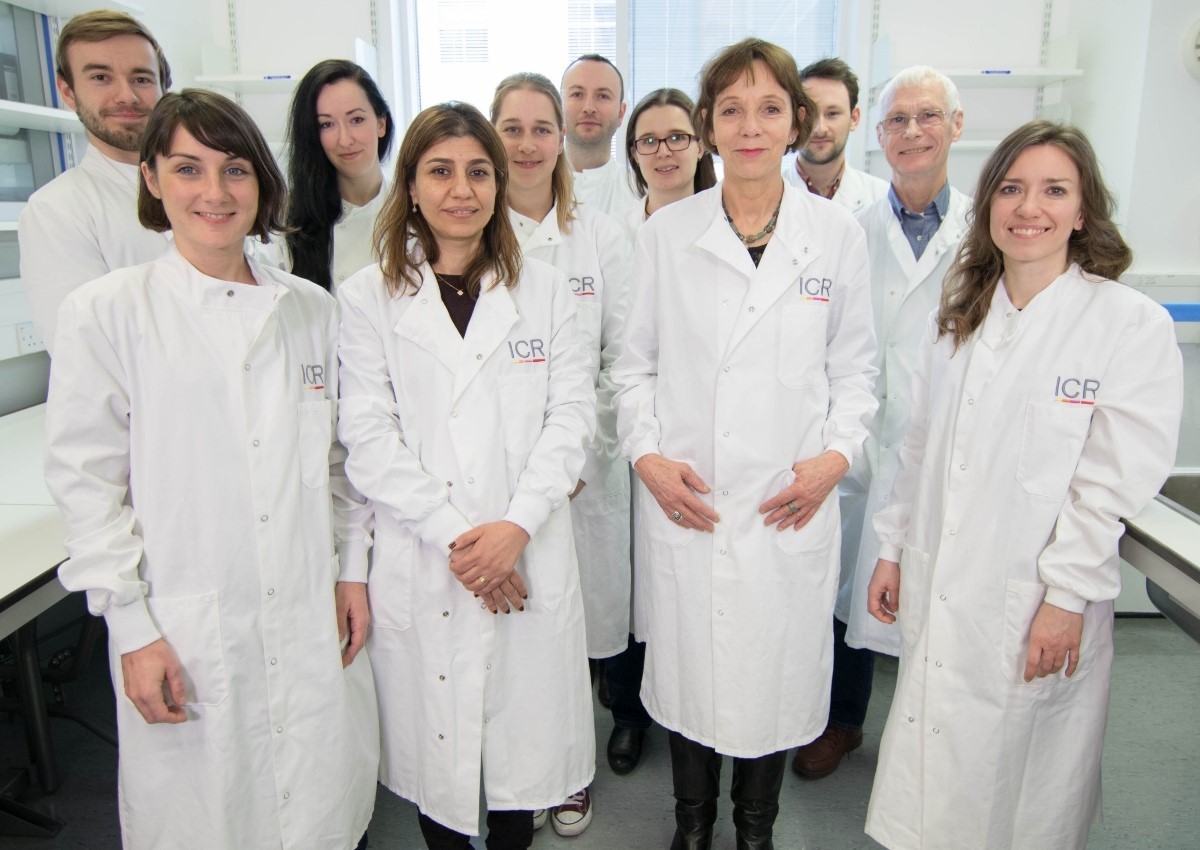Researchers have discovered a new way to diagnose and monitor breast cancer that has spread to the tissue surrounding the brain and spinal cord.
Researchers based at the Breast Cancer Now Toby Robins Research Centre at The Institute of Cancer Research, London and colleagues have discovered a new way to diagnose and monitor breast cancer that has spread to the tissue surrounding the brain and spinal cord.

A new test to check if breast cancer has spread
Researchers, part-funded by Breast Cancer Now, have discovered a more accurate way to diagnose and monitor how well treatments are working for breast cancer that has spread to the lining of the brain and spinal cord.
The test, which is known as a liquid biopsy, measures and analyses tumour DNA present in the spinal fluid to confirm whether cancer has spread to the lining of the brain.
Scientists believe that this method could help patients get diagnosed earlier, and that in the future it could also help diagnose advanced stages of other cancers that commonly spread to the lining of the brain, such as lung or skin cancer.
Leptomeningeal disease
Breast cancer can spread to the thin layers of tissue that cover the brain and spinal cord, known as the leptomeninges. This happens in about five to 10 percent of people with secondary breast cancer, and it can be difficult to diagnose.
The standard tests used to diagnose breast cancer that has spread there don’t always successfully diagnose the disease. It means some patients need to have the tests repeated, which can lead to a later diagnosis and a delayed start of treatment.
Analysing cancer DNA
The test Professor Clare Isacke and her team have developed could more accurately diagnose and track the disease than current tests. Instead of looking at cancer cells in the spinal fluid as current tests do, their test is looking for cancer DNA.
The researchers analysed 30 samples of spinal fluid from breast cancer patients who were thought to have cancer that had spread to the leptomeninges. They measured the amount of cancer DNA present in the samples and found that their test could correctly diagnose 100 percent of patients who had the disease and correctly confirm those who did not have it.
Dr Simon Vincent, Director of Research, Support and Influencing at Breast Cancer Now, said: ‘This exciting study suggests a liquid biopsy, which looks for cancer DNA instead of cancer cells, has the potential to diagnose leptomeningeal disease accurately and more swiftly. This earlier diagnosis could guide more effective treatment of this type of breast cancer, giving women the hope of more precious time with their loved ones.’
Guiding treatment
With more research, this new method could also help guide treatment. By measuring cancer DNA levels during treatment, it could help assess which cancers are responding well and identify who are unlikely to benefit. This could inform the decision to continue current treatment or switch to a different type of treatment.
Now, Clare and her team hope to further test the liquid biopsy in larger clinical trials in patients who have breast cancer that has spread to the leptomeninges to verify their current findings.
‘This test shows real promise and is a step towards a more personalised approach to treating this disease, as it will allow doctors to predict, and more accurately measure, how well a patient will respond to therapy,’ said Professor Clare Isacke.
The study was published in the journal Clinical Cancer Research and was funded by the Medical Research Council, Breast Cancer Now and the National Institute for Health Research Biomedical Research Centre at The Royal Marsden NHS Foundation Trust and The Institute of Cancer Research (ICR).
Breast Cancer Now is steered by world-class research, and we are always working on new projects. You can find out more about our work on the research section of our site.